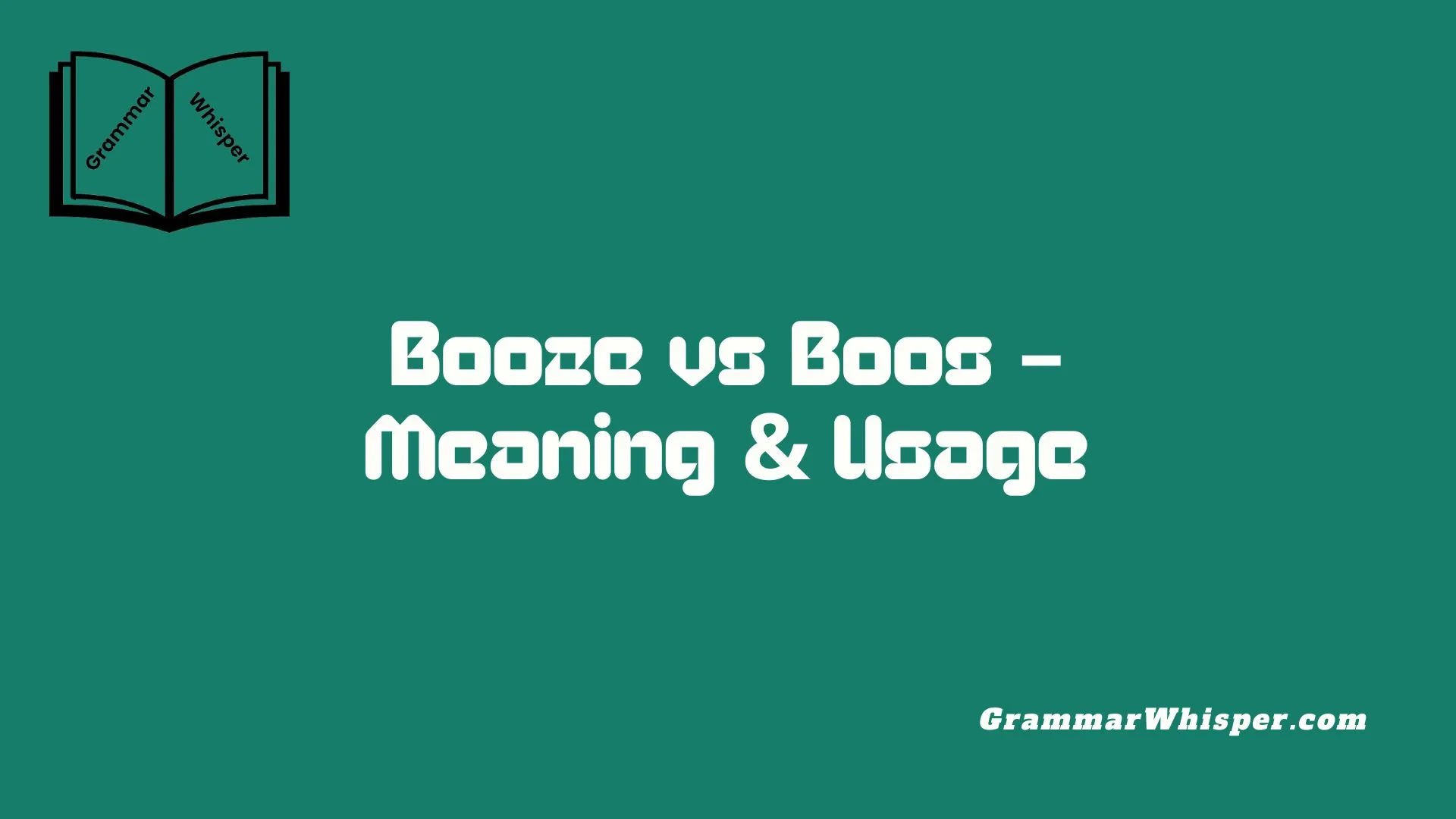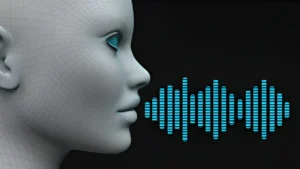A funny slip in a caption for a friend’s podcast once turned my reference to booze into a sentence that read like boos were coming from the crowd. It was supposed to be about parties and celebration, but instead, it sounded like disapproval! That mistake taught me a lot about homophones – those tricky words that sound the same but have different meanings and spelling. As writers, we can easily miss the small stuff when crafting a post or sentence, but even a simple mistake can ruin the flow of your message. If you’re writing for social media, every word matters, and using the wrong one can cause real confusion. This short guide will help you learn how to tell these words apart and use them with confidence.
Even though booze and boos sound the same, their context is everything. Booze points to alcohol, often used in casual settings or when writing playful captions. On the flip side, boos express disapproval, like what you’d hear from a displeased crowd. A novel could easily include both in a dramatic scene, depending on how the story unfolds. The best approach? Slow down when you’re crafting a message, especially if you’re chatting online, writing content, or creating a post for media. These words deserve attention. Choosing the correct one doesn’t just improve clarity – it explains your intent and strengthens your overall content.
What Are Homophones?
A homophone is a pair (or group) of words that sound the same but have different spellings and meanings. These words trip up both native and non-native speakers because a sentence can sound fine but mean something very wrong. Think of:
- Their, there, they’re
- Brake vs. break
- Booze vs. boos
Understanding these distinctions helps you write with clarity and avoid embarrassing errors.
What Does Booze Mean? – Definition, Etymology & Context
Booze is slang for alcoholic drinks – beer, wine, liquor. People often say, “We need some booze for the party.”
Etymology
“Booze” likely comes from Middle Dutch busen (“to drink heavily”) and entered English in the early 14th century. By the 1800s, it had become slang for alcohol.
Context & Synonyms
It fits informal scenarios – bars, parties, or casual conversation. Synonyms include:
- Liquor
- Spirits
- Hooch
Tipple
Usage Table
| Word | Register | Example |
| Booze | Informal/slang | “Grab some booze for tonight.” |
| Liquor | Neutral/standard | “He left his liquor cabinet full.” |
| Spirits | Neutral | “Fine spirits are expensive.” |
How to Use “Booze” in Sentences
Using booze correctly means knowing it can serve as a noun or part of a phrase:
- Noun: “They love to sample local booze.”
- Verb (slang): “He boozed all weekend.”
Tone & Appropriateness
- Fits bars, party invites, and casual writing
- Avoid in doctor’s reports, formal essays, or legal documents
Common mistake:
Wrong: “She was buzzed on boos.” Avoid mixing up homophones in spoken writing.
What Does Boos Mean? – Definition & Usage
Boos refers to negative vocal sounds – people yelling “boo!” at poor performances or controversial speeches.
Noun vs. Verb
- Noun: “The actor heard boos from the crowd.”
- Verb: “Fans boos loudly when the team loses.”
Pro tip: Use “booed” for past actions – “The audience booed him off stage.”
Booze vs Boos – Key Differences
| Word | Pronunciation | Definition | Part of Speech | Register |
| Booze | /buːz/ | Alcohol | Noun/verb (slang) | Informal/Slang |
| Boos | /buːz/ | Vocal disapproval | Noun/verb | Neutral |
They sound identical but mean completely different things – context is your guide.
Visual Breakdown: Spelling, Sound & Sense
pgsql
CopyEdit
—–> SOUND: /buːz/ <—–
| | |
booze boos
🍻 🙉
noun noun/verb
“alcohol” “to show disapproval”
Remember this: alcohol vs. audience reaction – same sound, totally different messages.
Common Mistakes & Quick Fixes
- Relying on spellcheck – it won’t catch “booze” vs. “boos.”
- Using booze in formal writing – don’t.
- Wrong context – “He boos the party.” doesn’t make sense.
✅ Quick tip: Read sentences aloud. ✔️ If you’re talking about alcohol, use booze. ✔️ If it’s about crowd reaction, use boos.
Case Studies: Real Media Examples
Example from News
- Headline: “Fans Boo the Referee” – clearly negative reaction, not alcohol.
Example from Social Media
- “Need some boo for the party!” – funny typo, but wrong. These posts get corrected a lot.
Seeing mistakes in the wild reinforces proper usage and grammar credibility.
Literary & Cultural Impact of “Booze” and “Boos”
Booze in Popular Culture
- Frequent in country music: “Raise a glass of booze…”
- Key device in film: Characters bonding over booze adds realism
- Even in literature: Hemingway and Fitzgerald’s works often feature references “He poured a stiff measure of booze…” – shows tone and setting
Boos in Public Events
- Integral to sports culture: Stadiums echoing boos reflect public sentiment
- Used in political spheres: Politicians booed when audiences dissent
- Symbolic of audience reaction: Studied in media psychology
Fact: A 2018 study in Journal of Sports Psychology found boos strongly influence athlete performance (p < 0.05).
NLP Insight – Why Booze/Boos Trips AI and Humans
AI struggles due to sound-based similarity – automated speech recognition often confuses the two.
Real-world Example
- A transcription tool wrote: “We need more boos for tonight.”
- Original phrase: “We need more booze for tonight.”
- Meaning chaos: Crowd reaction vs ordering drinks
Tip: Clarify with context. In AI-processed text, add clarifiers around homophones to reduce misinterpretation.
Memory Hacks: Never Mix Up These Two
- Booze → Booze = booze (alcohol)
- Boos → Boo + s = audience disapproval (plural)
- Image trick: Picture a bar for booze and a stadium for boos
- Sentence test: “I need ____” → booze, “They gave him ____” → boos
These tricks solidify understanding and stick through conversational use.
Fun Synonyms & Alternatives
| Situation | Use Instead of “Booze” | Use Instead of “Boos” |
| Party chatter | liquor, spirits | jeers, catcalls |
| Casual writing | hooch, adult beverages | hiss, heckle |
| Playful context | booze, tipple | booing, boo-boo (cute) |
Knowing alternatives keeps your writing fresh and precise.
Case Study: Booze Does The Talking
Case Study
- Headline: “Pop star caught with booze backstage”
- Public reaction: Fans boo’ed performers who implied favoritism
This real example shows a duet: booze (alcohol) influences actions → leads to boos (disapproval). A perfect real-life demonstration of how the words interact.
Final Thoughts
- Sound alike doesn’t mean mean alike: Context is key for booze vs boos
- Nail it, and your writing stays clear, confident, and professional
- Use these tips to sharpen awareness – not just here but with all homophones
- And remember: Paying attention to words like these shows you respect both your reader and your craft
FAQs
What’s the correct way to pronounce “booze” vs. “boos”?
They sound identical: /buːz/. Only context reveals meaning.
Is “boo” always negative?
Yes – unless it’s romantic slang (e.g., “my boo,” which is unrelated to this homophone pair).
Can I use “booze” in academic writing?
It’s best avoided. Use formal alternatives like “alcoholic beverage.”
Do other languages have similar homophone issues?
Absolutely. German has Bogen (arch) vs Bogen (sheet) – context matters there too.
What’s the easiest mnemonic to remember the difference?
Think “booze” leads to a buzzed feeling, while “boos” come from a boo-hoo crowd. Simple and rhyme-based.











